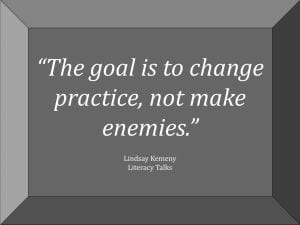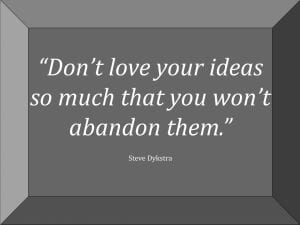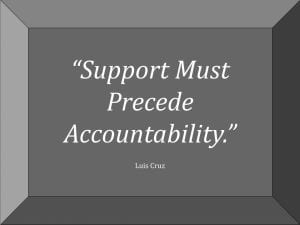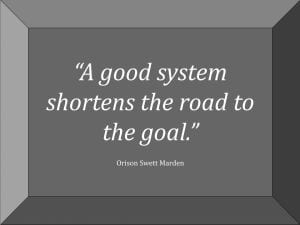There’s nothing worse than leaving a meeting with a yucky feeling in your gut. It’s happened to me more times than I can count, most recently just a few days ago. As I worked with a teacher team on intentional planning (a “new” approach to our instructional coaching work in FMCSD), I found myself bombarding my colleagues with questions. They had decided to focus on the third of five of our district expectations: “Teacher utilizes frequent checks for understanding to assess student learning.”
As we began to look at each part of an upcoming lesson, I asked questions to determine where it would be reasonable and/or worthwhile to employ a check for understanding. The more I asked, the more flustered they became. Oh, and did I mention that our superintendent was present at the meeting? Her arrival was unscheduled as it has become more doable and more meaningful to attend meetings without prior notice. Full disclosure: this does not bother me in the least. Our work should be our work should be our work…
I tell this story from a few days ago because 1) it is still very fresh in my mind and I haven’t recovered from the discomfort I caused my colleagues and 2) it is evidence of the struggle that comes with leading systematic change. I couldn’t help but think of this today as I listened to a recent episode of Literacy Talks (Season 4, Episode 11), where Lindsay Kemeny brilliantly stated (as a result of listening to Kareem Weaver’s keynote address at the 2023 Reading League conference): “The goal is to change practice, not make enemies.”
We are NOT trying to make enemies. We are trying to change practice in a way that positively impacts student learning. And it can’t be said enough: You don’t have to be bad to get better. And finally, just to load the post with amazing quotes, as change heads our way, let’s remember what Steve Dykstra says (again, from the Literacy Talks podcast): “Don’t love your ideas so much that you won’t abandon them.” (I send this message to myself as much as to anybody else).



Support and Pressure
Systematic change, whether for the purpose of implementing a new curriculum, new instructional coaching system, or a new approach to reading instruction requires much support from all levels. And that support can only be solid if those implementing the change are well-informed. Well-informed doesn’t mean leaders know everything there is to know about a thing, because that is nearly impossible. But, there is absolute merit in multiple people bringing multiple perspectives based on a strong body of evidence, and recognizing that understandings change as new evidence comes in.
In addition to support, a healthy dose of pressure – shall we say accountability? – results in the work actually getting done. When change is implemented, those who are affected by the change must have a clear vision of what is to be expected. In the case of FMCSD’s move to systems coaching (as opposed to a coaching-by-invitation-only model), the expectations are clear: administrators will be conducting regular walk-through’s in classrooms to record evidence of the five instructional expectations. The pressure is on: we all know administrators are coming, and we all know what they are looking for (and by golly, I certainly hope we know the why: these five expectations are high-leverage practices that result in high levels of learning for all of our students.)
Teacher teams are not expected to be experts at implementing all five practices with the fidelity that actually results in those high levels of learning… yet. This is where the support of the instructional coaching staff comes in: we are here to plan with teams, to model for teams, to provide examples of each practice, and to support teams with implementation and reflection.

Sustained Effort
In order to make change sustainable, a long-term plan must be in place. No matter the initiative, those implementing it would benefit from having a clear plan for roll-out which includes responsibilities, timeline, and resources. In addition, as George Couros reminds us, knowing the opposing “side” (those opposed to a proposed change) as well as your own “side” allows you to be prepared for push-back and the plan for addressing it.
In a recent blog, Couros states: “I recently read the book, “Screen Schooled: Two Veteran Teachers Expose How Technology Overuse Is Making Our Kids Dumber,” and by the title, you can see the authors have a clear view of technology in education. I read it knowing that I wouldn’t agree with a lot of it but that it would a) push my thinking and b) help me think deeper about my arguments. I firmly believe that if I can’t make your case for you, then I probably don’t understand your position or mine.”

In addition, he says, “If a school community says that an approach is working for them, they know their community best and want to do what is best for students. I believe that. But I think what gets us in trouble in education is just assuming what we thought or did 5, 10, or 50 years ago should never be revisited. I don’t believe everything should change, but I think we should always be discussing how we can best serve our students. ”
This past week I had the opportunity to meet with some leaders from the Cedar Rapids Community School District. They are undergoing a curriculum adoption for the 24-25 school year. One of their top choices is none other than EL Education. They had a host of excellent questions about the curriculum, most of which I think I was able to answer. In response to their question about regrets with implementation/challenges with the curriculum, I gave the response that I share with a great deal of regularity when asked (or not asked!) about this: my biggest regret is not taking a year (or more) to build knowledge with our teaching staff around evidence-based literacy practices. In addition, as I mentioned earlier in this writing, I regret not spelling out a plan that included responsibilities, timeline, and resources for the rollout of the implementation… over several years.
It’s impossible to think through every scenario, but the better prepared, the better the roll-out. Personnel changes are going to happen, new evidence is going to come to light, unexpected problems will arise…. but that’s the advantage of a strong system: parts are moving constantly, and the system is built around that very concept.

What a coincidence that you mention, what “George Couros reminds us, knowing the opposing “side” (those opposed to a proposed change) as well as your own “side” allows you to be prepared for push-back and the plan for addressing it.”
After you and I talked this weekend I dug into LETRS. I decided to prepare for possible resistance, concerns, and pushback from teachers not about LETRS per se, but about the overall idea of the “science of reading”. I plan to send you the articles I found in my search last night in an email.
Here are the articles I categorize as Cautionary/Critical that I found to be informative and also based in research:
https://www.readingrockets.org/blogs/shanahan-on-literacy/what-do-you-think-phonics-first-or-phonics-only-primary-grades
https://literacyresearchassociation.org/stories/the-science-of-reading-and-the-media-does-the-media-draw-on-high-quality-reading-research/
https://ila.onlinelibrary.wiley.com/doi/10.1002/rrq.406